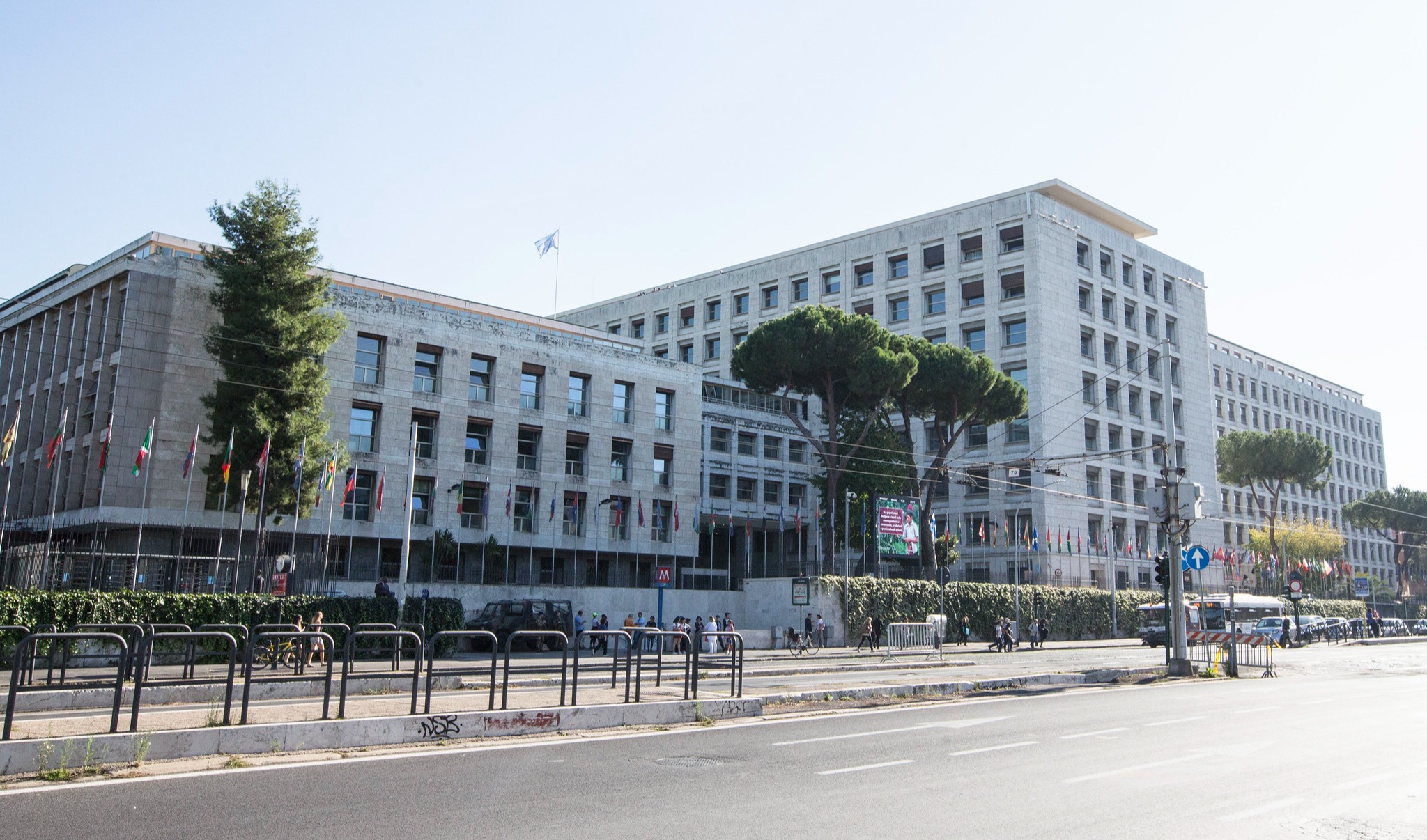 ©FAO/Riccardo De Luca
©FAO/Riccardo De Luca
Countries to Resume Crucial Biodiversity Discussions in Rome, 25-27 February 2025
The UN Biodiversity Conference, suspended earlier this year in Cali, Colombia, will reconvene from 25-27 February, 2025 in Rome, Italy, at the headquarters of the Food and Agriculture Organization of the United Nations (FAO).
The bureau of the Conference of the Parties to the Convention on Biological Diversity today agreed to hold resumed sessions for COP 16 and the concurrent meetings of the Protocols to address agenda items left unresolved following the suspension of the meeting due to loss of quorum in the early hours of 2 November.
"In the weeks to come, and during our meeting in Rome this February, I will work alongside Parties to build the trust and consensus needed to achieve Peace with Nature, ensuring that the goals and targets of the Kunming-Montreal Global Biodiversity Framework (KMGBF) translate into tangible action. Securing adequate and predictable financing will be central to our efforts, enabling transformative change for biodiversity while ensuring benefits for communities and ecosystems alike." said H.E. Susana Muhamad, Minister of Environment and Sustainable Development of Colombia and President of COP16.
“Strong results achieved at COP 16, underpinned by a spirit of compromise and dialogue, show that multilateralism remains effective even in challenging times,” said Astrid Schomaker, Executive Secretary of the Convention on Biological Diversity. “Today’s swift agreement to conclude our discussions in early 2025 reflects the determination to maintain momentum and ensure the successful implementation of the KMGBF.”
Key Issues for the Resumed Discussions
(hyperlinks are to the relevant document)
Mobilizing Financial Resources for Biodiversity
A major focus of the resumed session: a new Resource Mobilization Strategy aimed at securing $200 billion annually by 2030 from all sources for biodiversity initiatives and reducing harmful incentives by at least $500 billion per year by 2030.
Parties will also explore the potential establishment of a global financing instrument for biodiversity, designed to mobilize and distribute funding effectively. Current funding comes from bilateral arrangements, private and philanthropic sources, and dedicated funds such as the Global Environment Facility (GEF) including its Global Biodiversity Framework Fund (GBFF) and the Kunming Biodiversity Fund (KBF).
Monitoring Framework
Finalizing tools for Parties to measure progress against the monitoring framework for the KMGBF’s 23 targets.
Planning, Monitoring, Reporting, and Review (PMRR) Mechanism
Decisions will determine how progress toward KMGBF implementation will be reviewed at COP 17. Parties will also consider incorporating commitments from non-state actors, including youth, women, indigenous peoples, local communities, civil society, and the private sector. Also on the agenda: Finalizing the national reporting template, which includes headline indicators.
Financial Mechanism
Parties are expected to endorse the achievements of the GEF, encourage further contributions to the GBFF, and provide additional guidance to the GEF in light of its upcoming replenishment negotiations.
Other agenda items include decisions on cooperation with other conventions and international organizations, CBD’s multi-year programme of work, and the adoption of final reports from COP 16, COPMOP 11 (Cartagena Protocol), and COPMOP 5 (Nagoya Protocol).
Historical Results in Cali, Colombia
Before COP 16 was suspended due to lack of quorum, the conference achieved groundbreaking agreements on global biodiversity protections and implementation of the Kunming-Montreal Global Biodiversity Framework. Governments agreed to establish the pioneering “Cali Fund,” for industries such as pharmaceuticals, biotechnology, and agriculture—those benefiting from Digital Sequence Information (DSI) on genetic resources—to share benefits with developing countries, indigenous peoples, and local communities.
Under the guidelines, large companies and other entities commercially benefiting from DSI are expected to contribute to the Fund based on a percentage of profits or revenues. Smaller entities, academic institutions, and public research bodies that use DSI for non-commercial purposes are exempt.
The fund’s resources will largely benefit developing countries, supporting the implementation of the KMGBF and National Biodiversity Strategies and Action Plans (NBSAPs). Additionally, funds will bolster indigenous peoples’ and local communities’ activities.
COP 16 also endorsed measures to enhance the contributions of indigenous peoples and local communities to the three objectives of the Convention and KMGBF implementation. Through a new programme of work under Article 8(j), their rights, contributions, and traditional knowledge have been further integrated into the global agenda.
A new Permanent Subsidiary Body on Article 8(j) and other provisions was established, with its operational framework to be finalized over the next two years. This body will elevate the role of indigenous peoples and local communities in implementing the Convention. Parties also adopted a new programme of work on Article 8(j) and other provisions of the Convention on Biological Diversity related to indigenous peoples and local communities.
In another key decision, Parties recognized the contributions of people of African descent, particularly those maintaining traditional lifestyles, in conserving and sustainably using biodiversity.
Other significant agreements from COP 16 included decisions on health and biodiversity, invasive alien species, risk assessment of genetically modified organisms (e.g., mosquitoes), and guidance on ecologically and biologically significant marine areas beyond national jurisdictions.
COP 16 was the largest meeting ever under the CBD, with over 23,000 registered participants participating in hundreds of parallel events in the Blue and Green Zones over the two week period including summits on Nature and Culture, Cities and Subnational Authorities, Business and Finance. Thematic days were held at the KMGBF Pavilion in the Blue Zone on Education, Oceans, Health, Trade, Restoration, Protected Areas, and others. The GBFF received 163 million USD in additional pledges, the Bezos Earth Fund and the Blue Nature Alliance devoted over 50 million USD for Ocean protection, and the European Union devoted close to 190 million USD in pledges and commitments.
More information:
Biodiversity COP 16: Important Agreements Reached Towards making Peace with Nature